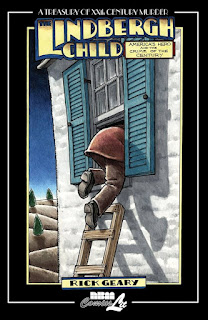I know. I read an honest-to-God novel and it wasn't based on a comic book or superhero or established TV show or film. I was inspired to find this book after seeing the trailer for the upcoming series Paramount+. But I don't have that streaming service. So I took a shot to see if my local library had the book on hand. I guess I hit the bullseye because I found it. Boy, was that one of the smartest moves I've ever made in my 40 plus long years of being an avid reader!
The story is about a Russian aristocrat at the dawn of the Russian revolution. It's 1922 and the Bolsheviks have taken power and are creating the foundations for establishment of the Soviet Union. Count Alexander Rostov has been summoned to a tribunal. Declared an enemy of the state, normally Rostov would be taken to a firing squad and shot or shipped off to Siberia. However, because of a poem he wrote that inspired the spark of the October Revolution, he is sentenced to permanent house arrest at the Hotel Metropol for the rest of his life.
Should he exit the doors of the Hotel, Count Rostov will be executed. Over the span of 4 decades, the confined gentleman will make do the best he can, living in exiled luxury as guests and staff of the Metropol come and go while the Soviet Union grows into a world power.
My first experience with writer Amor Towles, I was enthralled by this 2016 work. It was pure magic. After the first 100 pages, I was no longer a reader. I too was a resident of the Hotel Metropol. I could not stop reading this book. The desire to read another page turned into an extra 5, 10, 15 pages before I realized it was way past my bedtime and begrudgingly needed to call it a night.
I realize that Ewan McGregor is playing Count Rostov on the live action series. Yet no matter how hard I tried, I just couldn't picture anyone else in the role other than Kenneth Branagh. Turns out I wasn't alone in this as the Murder on the Orient Express director was on tap for the lead role for a very long time. As much as in my head, I kept hearing Branagh speaking in that French-Belgian accent as Hercule Poirot, I can't get past hearing McGregor as Obi-Wan Kenobi instead of a Russian polymath of refinement every time I watch the trailer for the forthcoming series.
I wish I could say that this book was perfect. It was pretty darn close. If not for having recently read the massive graphic novel Petrograd, I would have been a lot more lost understanding the early days of the Soviet Union. While written by an American, this book is very Russian. The more you know of the country's rich cultural history, the better you'll enjoy this book and I just don't know jack about Tolstoy, Chekov and their kin. Thankfully, there's so much heart and wonderment in this book, it makes up for those gaps in my knowledge.
This book is like a dream come true for me. I've always wanted to get stuck in an airport or be snowed in at an all-inclusive ski resort or have to spend a season at a research base in Antarctica. A Gentleman in Moscow was a chance to live those bizarre fantasies vicariously through the writing of Amor Towles. Unlike most novels I read, this novel is something I see myself making another stay at Hotel Metropol!
Worth Consuming!
Ratiing: 9 out of 10 stars.
.jpeg)




